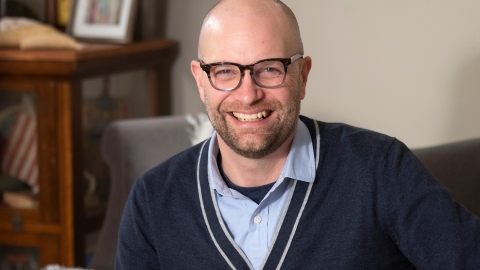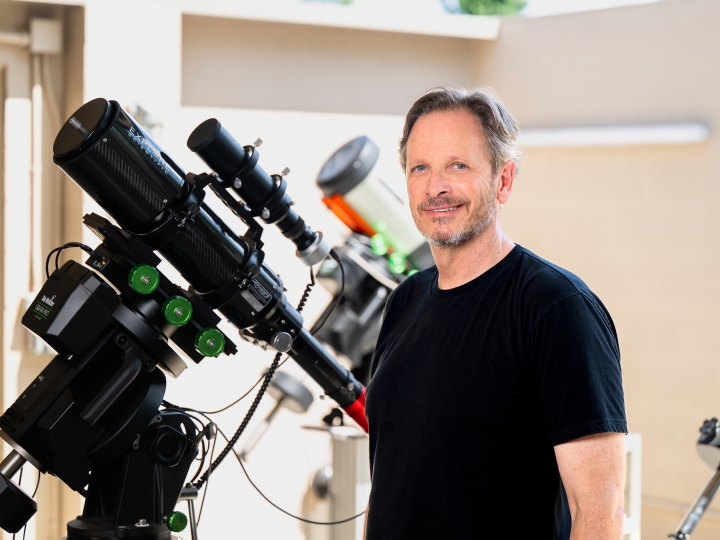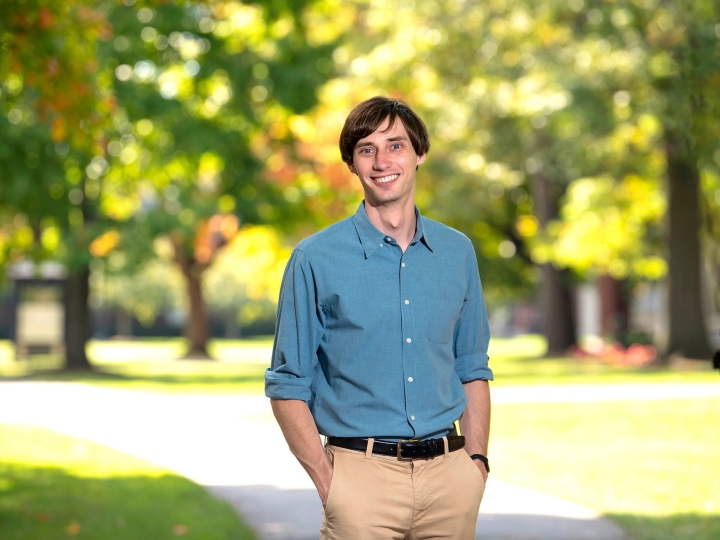
Christopher Martine, Biology
February 25, 2021
Part of my job as a scientist is to share with the public the amazing things we do and the amazing things we discover. If we expect people to understand science and support scientific endeavor, then we need to tell them what we are up to.
Over a decade of exploring the Australian Outback, Professor Chris Martine has found several new species of plants. "Each time, it's like a dream come true," he says. Contrary to the idea that the golden age of discovery is past, Martine thrives on the excitement of realizing how much of the natural world is still unknown.
"We are discovering new things every day," he says. "That is an incredible message for both the public and my students — that if you learn about biodiversity, you will find that there are many things, literally millions of things, left on the planet that we still don't know about. It just takes the proper training and willingness to go out and find them."
Martine studies wild relatives of eggplant. Unlike the large purple fruits in grocery stores, the wild species produce smaller green or cream, egg-shaped fruits that give the plants their name. Along with several new species collected in Australia, Martine and members of his lab have found previously undescribed eggplant relatives and other species in Peru and Hawaii. He uses both appearance and DNA technology to determine not only which plants represent new species, but also the evolutionary story behind them.
As Bucknell's David Burpee Chair in Plant Genetics & Research, Martine also explores questions related to seed dispersal, invasive and native species interactions, and pollination biology. He’s also an evangelist for plants, taking to Twitter, YouTube and other online mediums to spread the word about his discipline and how cool nature can be.
He has produced a series of online videos called Plants are Cool, Too!, which tell the stories of fossilized forests, carnivorous plants and more. He also writes essays for The Huffington Post, named a new species after Matt Damon’s character (a botanist) in the 2015 film The Martian, and allowed a class of local seventh-graders to name a species he brought back from Australia.
"Part of my job as a scientist is to share with the public the amazing things we do and the amazing things we discover," Martine says. "I think if we expect people to understand science and support scientific endeavor, then we need to tell them what we are up to."
Martine knows the effect an enthusiastic teacher can have on students, and provides ample opportunities for students to learn alongside him. He mentors six to 10 students a year in his lab, has taken students along on weeks-long explorations in the Australian Outback, and annually brings a cohort of students to present their research at the Botany Society of America’s annual conference, where Bucknell has gained a reputation as one of the top institutions for undergraduates to perform original research in botany.
"I didn't grow up thinking I was going to be a biodiversity scientist." Martine says. "It wasn't until I became an undergraduate and met truly inspirational professors who showed me how amazing the natural world is that it triggered this passion in me. That is my daily goal as a college professor — to be that same kind of motivation."

